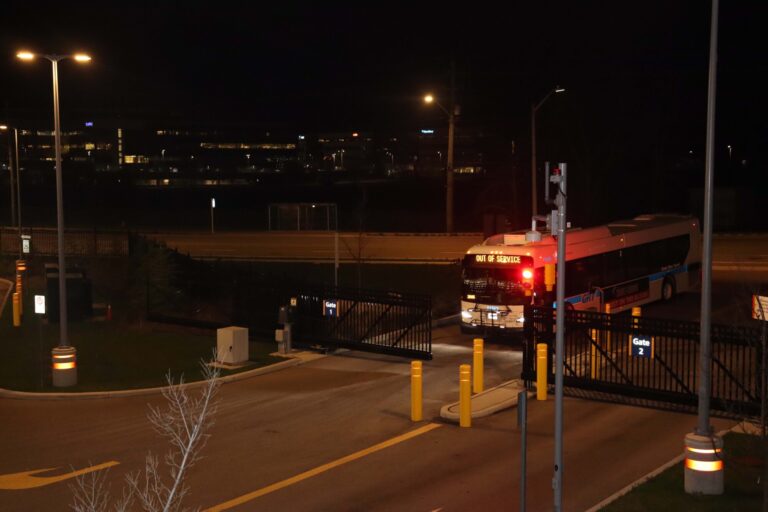University students who are active during late hours ask for night transportation services to easily commute through the city for social activities, events and study sessions.
The University of Waterloo New Democratic Party group (UWNDP) are helping lead the charge.
To make this decision possible, they are asking the city to bring back a cancelled Grand River transit route to help university students return to campus once bars and buildings close for the day.
“It makes it harder for more people to choose transit at all hours of the day. There are shift workers around the region, people who could be using transit to get to a job but don’t have that option,” Michael Druker, Tri-Cities Transport Action Group advocate said.
“Uptown is a thriving community at night. It does not end at midnight,” Damian Mikhail, co-president of UW NDP, said. “There are a lot of students who are still active, studying late at night. These students are some of the most vulnerable when it comes to safety.”
After explaining the issues with nightlife and travel for a university student, he elaborated on what transit the city should bring back to promote safer commutes for the students.
“We’re trying to bring back… Route 91, which is essentially a variant of the Route 7 that many people know, which will come from downtown Kitchener to Uptown Waterloo, then hit the university area.”
GRT discontinued Route 91 during the COVID-19 pandemic due to a lack of riders. Due to the pandemic, the bustling nightlife decreased since people rarely visited bars and attended local festivities, which led to this decision.
“This issue is deeply personal for many of us… At this point, buses and ION trains only run until midnight, but as students we pay for a GRT UPASS, an unlimited transit pass, as a part of our tuition. This is a fee of over $100 we pay every single term,” Michelle Angkasa, an Environment student at the University of Waterloo, said.
“So why is it that transit services stop at midnight, even though we know that students’ and other people’s lives don’t stop at midnight?” she said.
Now that the restrictions are over, people commute around the city more often. Mikhail hopes that returning Route 7 will encourage the city to bring back more night routes for university students who require transportation access during late hours.
He said that buses and transportation services such as Uber are unaffordable due to the recent price increases, so the only suitable way for students to commute across the region is to use Grand River Transit.
Mikhail created a petition with over 1000 signatures to put this decision into motion. Local university students hope this decision will improve the safety and commute for all students.
In response, regional councillor Colleen James plans to discuss this issue during Wednesday’s council meeting (taking place at 7:00). She wants to see if bringing back routes 91 and 92 is feasible and whether it’s a discussable item during budget talks.
She believes the primary concerns are the safety of workers and students who are out late at night and that people are using too much money to pay for night transportation services such as Uber.
During the council meeting, James proposed to reinstate the terminated bus services. However, the discussion raised some concerns for Cambridge councilors.
“I want to know not only the cost, but I also want to know if there are other areas in the region that have needs that merit or would equal what’s being asked for tonight,” said Coun. Doug Craig. His concerns centre on how this change will impact other cities and regions along with Waterloo, thinking the decision only benefits the K-W area.
Later this year, Grand River Transit plans to launch public consultations on its five-year business plan. Doug Spooner, the region’s director of transit service, said late-night bus service is up for consideration along with geographic expansion and increased frequencies to address overcrowded areas. The main goal is to introduce a new service across the network to serve various sectors.
James’s motion to restore Route 91 in 2024, supported by the council, will cost about $20,000. But for now, Waterloo Mayor Dorothy McCabe said
“We’re going to implement this plan into pilots and in stages, and this is really the place to do it.”
This student-created plea has garnered the attention of other Ontario regions. Will this night service be a benefit to other Ontario Regions as well?

